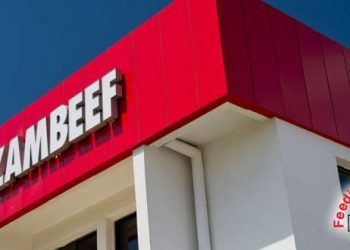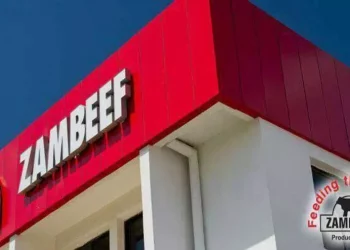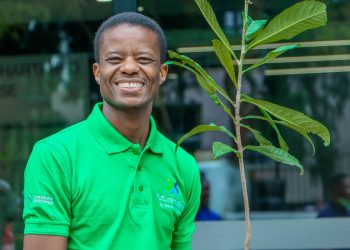Oswald Magwenzi, Country Managing Director of Zambia Sugar Plc (An Illovo Sugar Africa Company) took part in the ongoing 2022 United Nations Climate Change Conference of the Parties of the UNFCCC (COP27) panel discussion of an overview of IFCs approach to Agriculture and Adaptation including services offered by the MAS Advisory team.
The discussion introduced the recently published IFC/IFAD Handbook for Scaling Irrigation Systems and focused on the way smart irrigation systems and practices can provide a pathway out of poverty for millions and increase farmers climate resilience with a particular focus on Sub-Saharan Africa and South Africa.

Speaking at the Panel Discussion Oswald highlighted that production ranged from 1.7 and 1.8 million tonnes of sugar making ILLOVO one of the biggest sugar producing companies in Africa. ”Climate Resilience is the ability to produce near normal crop yield during years of drought and excessive rain, how can you measure that the investment we are making in irrigation are actually making farmers climate resilient and the best way to measure climate resilience for me is to see how farmers with irrigation and drainage have performed during droughts and years of excessive rain.”
About 100 million dollars was invested by Illovo to expand the Public Private Partnership processing. Performance since 2008 has improved as 25% of the sugar cane comes from the small holder farmers amounting to 50,000 to 60,000 tonnes of sugar. With the provision of irrigation systems small holder farmers can produce In any season.
In the 2015/2016 farming season Eswatini experienced a 1 in a 100 year drought with less than 60% rains nonetheless small holder farmers produced 97% of the normal yield showing climate resilience. Later on in 2021 Eswatini experienced cyclone Eloise but they still managed to produce a normal yield showng that the investments in irrigation are really working to make them climate resilient.
Moving on to Zambia they are three small holder farming organizations namely Kaleya, Kamanyonyo and Magogo which supplied 10% of the 3.2 million tonnes of cane that was processed from the 2800 hectares at the farm. In the 2015/2016 farming season Zambia experienced drought and produced 83% of normal yield which is about 300,000 tonnes concurrently in the 2018/2019 farming season after another drought with less than 50% of rain a yield of 87% was obtained and under very wet circumstances of the 2020/2021 farming season with 150% of rainfall a yield of 94% was obtained a clear demonstration of climate resilience.
“Investment in irrigation by Public and private organisations can boost climate resilience particularly for small holder farmers I therefore challenge public and private sector players to do more to scale up investment in irrigation and drainage to boost Climate Resilience.”
Kathrine Migan Associate Vice President and General Council for IFAD was one of the panelists. Kathrines’ focus was on food security. “Africa has this huge potential and huge resources but almost half of the people in Africa are food insecure, we are committed to changing that so that Africa can not only feed itself but Africa can feed the world and this starts with small holder farmers.”
The main problem farmers in Africa are facing is irrigation , only 7% of Africa is irrigated if this could be solved by working together with the IFC to find practical solutions and policy advise on the importance of irrigation through the Launch of the handbook.
Anop Chagwani manager for climate finance and policy international finance corporation said the main problem was to bridge the gap in knowledge scaling solutions with practical examples learnt over the years around the continent.
Geraldine Mukeshimana Rwanda minister for agriculture said developing an irrigation master plan and developing a strategy to do other crops and small scale irrigation by ifad and world bank and the annual budget every year supports farmers to irrigate as droughts have been amplifying every year ,Rwandan government supports close to 75% and farmers bring the 25%. Farmers in Rwanda were not accustomed to irrigation but government is taking deliberate efforts to provide extension services teaching farmers how to irrigate.





